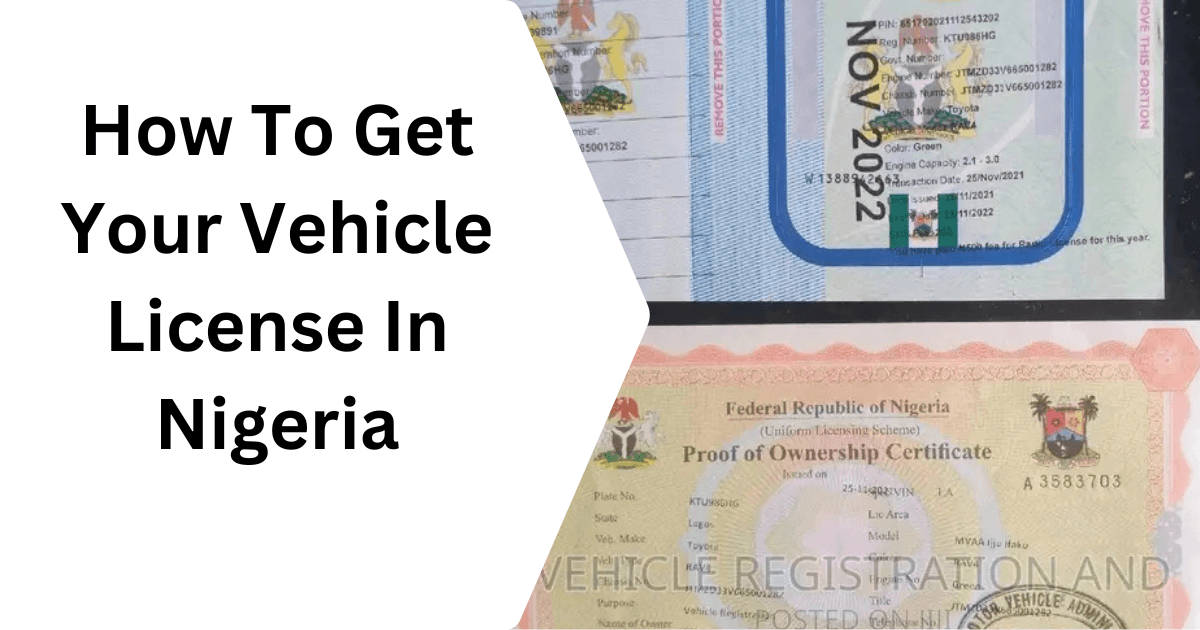Lagos, Nigeria’s economic powerhouse and Africa’s largest city, presents a unique transportation challenge for visitors and residents alike. With its sprawling urban landscape spanning mainland and islands, navigating this megacity efficiently requires strategic planning. While public transportation options exist, from the BRT system to water taxis, many find that renting a car provides the flexibility and convenience needed to truly experience all that Lagos has to offer.
Car rental in Lagos has evolved significantly in recent years, with options ranging from established international companies to innovative local startups offering diverse vehicle choices and service packages. Whether you’re a business traveler needing reliable transportation between meetings, a tourist exploring Lagos’ vibrant culture, or a returning Nigerian seeking independence during your stay, hiring a car can transform your Lagos experience by providing control over your schedule and movements.
This guide aims to equip you with comprehensive knowledge about car rental options, requirements, costs, and practical tips to ensure your journey through Lagos is as seamless and enjoyable as possible.
Types of Car Rental Services in Lagos
Lagos offers diverse car rental options to meet various needs and preferences. Traditional car rental companies like Avis, Hertz, and local operators such as Keke Car Hire provide standard services where you rent vehicles directly from their fleet, either with or without drivers. These established businesses typically offer structured pricing, formal contracts, and vehicles ranging from economy cars to luxury SUVs.
Peer-to-peer car sharing platforms have gained popularity in Lagos, connecting private car owners with renters through apps and websites. Services like Moove and Cars45 enable more personalized experiences, often at competitive rates compared to traditional rentals. These platforms typically include verification processes and insurance coverage, making them increasingly trusted alternatives for both short and long-term rentals.
Chauffeur and specialized services represent another significant segment of Lagos’ car rental market. Many businesses and travelers prefer hiring cars with experienced local drivers who navigate Lagos’ complex traffic patterns and understand the city’s geography. Additionally, corporate rental services cater specifically to businesses, offering fleet management, extended rental terms, and customized packages for companies requiring multiple vehicles or executive transportation solutions.
Cost Factors
The cost of renting a car in Lagos varies widely based on several key factors. Daily rates typically range from ₦5,000 for economy vehicles to ₦50,000+ for luxury SUVs or executive cars. Most companies offer discounted weekly and monthly packages, with potential savings of 10-30% for longer rental periods. Seasonal fluctuations affect pricing, with higher rates during December holidays, major festivals, and business conference seasons.
Fuel policies significantly impact overall costs. While some rentals include a full tank with the expectation to return it full, others charge premium rates for refueling. The “full-to-full” policy is generally most economical, but confirm the specifics before signing your contract. Given Lagos traffic conditions, fuel consumption can be substantial, especially for larger vehicles or during peak congestion periods.
Tips for Choosing the Right Vehicle
When selecting a rental car in Lagos, prioritize vehicles with higher ground clearance like compact SUVs or crossovers to navigate unpredictable road conditions including occasional flooding and potholes. Toyota models (Corolla, Camry, RAV4) and Hyundai vehicles are particularly recommended for their reliability, widespread availability of parts, and fuel efficiency—crucial considerations given Lagos’ notorious traffic congestion.
Consider your specific needs carefully: business travelers might prioritize comfort and professional appearance with sedans like the Toyota Camry or Honda Accord, while those exploring beyond city limits should opt for rugged SUVs with better suspension systems. Air conditioning is non-negotiable in Lagos’ humid climate, and vehicles with good fuel economy (8-12 km/liter) will significantly reduce your transportation costs during inevitable traffic delays.
Thoroughly inspect any vehicle before accepting it, documenting existing damage with photos and ensuring all essential features function properly. Check that safety equipment (spare tire, jack, first aid kit) is present and verify the vehicle’s service history if possible. For longer stays, locally manufactured or assembled vehicles often prove more practical due to easier maintenance and parts availability, while smaller cars generally offer advantages for navigating Lagos’ congested streets and limited parking spaces.
Navigating Lagos Traffic
Lagos traffic is notoriously challenging, with peak congestion typically occurring between 6-10 AM and 4-8 PM on weekdays. Plan journeys outside these hours when possible, or use traffic apps like Google Maps and Waze to identify alternative routes. The Third Mainland Bridge, Lekki-Epe Expressway, and Ikorodu Road experience particularly severe bottlenecks during rush hours, often adding hours to travel times.
Parking presents another significant challenge in Lagos. Commercial areas like Victoria Island and Ikeja have limited street parking, with most spaces managed by informal attendants charging ₦200-₦500 per hour. Use secure parking facilities at major malls, hotels, and office complexes whenever available, even if they charge premium rates (₦500-₦1,000). Always remove valuables from your vehicle and consider parking in visible, well-lit areas with security personnel.
Safety considerations should influence your driving decisions in Lagos. Avoid night driving when possible, particularly in unfamiliar areas. Keep doors locked and windows up in heavy traffic or isolated areas. Be cautious of unmarked speed bumps, open drainage systems, and sudden lane changes by other drivers. During rainy season (April-October), exercise extreme caution as flooding can occur rapidly on major roads, making some areas temporarily impassable even for larger vehicles.
Common Challenges and Solutions
- Vehicle Breakdowns: Mechanical failures are an unfortunate reality when driving in Lagos, often resulting from the combination of challenging road conditions, extreme traffic congestion, and inconsistent fuel quality. Prepare by saving emergency contacts from your rental company, considering rentals with comprehensive roadside assistance packages, and familiarizing yourself with basic troubleshooting procedures like checking tire pressure or jump-starting. Many experienced Lagos drivers maintain relationships with trusted mechanics and keep a list of authorized service centers for their specific vehicle make.
- Navigating Without GPS: Lagos’s complex road network and inconsistent internet connectivity can make navigation challenging even with smartphone apps. Mitigate this by downloading offline maps before your journey, learning major landmarks as reference points, and considering vehicles with built-in GPS systems that don’t rely on cellular data. When technology fails, don’t hesitate to ask locals for directions—gas station attendants, security guards, and shop owners often provide surprisingly accurate guidance and can alert you to recent road closures or traffic situations not yet reflected in navigation apps.
- Fuel Availability: Periodic fuel scarcity remains an unpredictable challenge in Lagos, sometimes resulting in long queues or temporary station closures. Adopt the local practice of never letting your tank fall below half-full, especially before weekends or public holidays when shortages are more common. Identify reliable filling stations along your regular routes and consider using apps like FuelMetrics that provide real-time information on fuel availability. Keep emergency cash specifically for fuel purchases, as card payment systems occasionally malfunction during high-demand periods.
- Traffic Law Enforcement: Encounters with traffic officials can be confusing for visitors unfamiliar with local procedures. Maintain a folder with all relevant documentation—rental agreement, driver’s license, vehicle registration, and insurance—easily accessible in the glove compartment. Familiarize yourself with basic Nigerian traffic rules, particularly regarding right-of-way at roundabouts and uncontrolled intersections. During any official stops, remain respectful and calm, avoiding confrontational language or gestures, and be prepared to clearly explain your destination and purpose if asked.
- Security Concerns: Vehicle security requires heightened awareness in certain areas of Lagos, particularly after dark. Research safe routes before traveling to unfamiliar neighborhoods, avoid displaying valuable items inside the vehicle, and maintain the local practice of keeping doors locked and windows up, especially when stopped in traffic. Park only in secure, monitored locations with attendants or CCTV coverage, even if this means paying premium rates or walking slightly further to your destination. Consider vehicles with built-in security features like alarm systems and engine immobilizers.
- Weather-Related Issues: Lagos’s rainy season (April-October) brings sudden downpours that can quickly flood low-lying areas and cause massive traffic disruptions. Check weather forecasts before important journeys and build extra time into your schedule during these months. Learn alternative routes that avoid flood-prone areas like Lekki, parts of Ikorodu Road, and Ajah. Consider renting vehicles with higher ground clearance during rainy periods, and keep emergency supplies (water, snacks, power bank) for unexpected delays that can sometimes stretch to several hours when major arteries become impassable.




